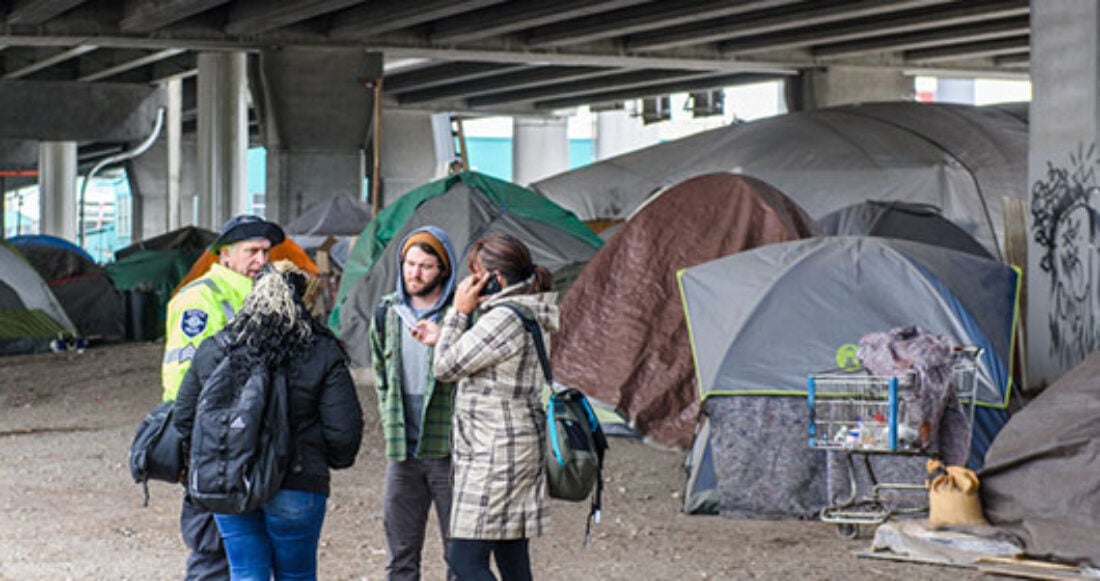Reducing Homelessness in Seattle

Photo courtesy of the City of Seattle Navigation Team
Two public sector leaders in the Seattle area are working to make homelessness rare and brief by applying leadership skills and tools they gleaned from the Foundation’s Children and Family Fellowship®. The Fellowship has been bringing together leaders in government and nonprofit organizations for more than 25 years to build their capacity to deliver specific, measurable results.
Catherine Lester, the director of the City of Seattle’s Human Services Department, participated in the Fellowship in 2013–14. She has been focused on shifting more than $30 million in department spending to contracts that can demonstrate results, including measurable success moving people experiencing homelessness into permanent and stable housing. There are five specific performance measures in the city’s most recent Request for Proposals for homelessness-related investments.
Watch videos on leading for results
These five performance measures are shared systemwide among the city, the King County Department of Community and Human Services and United Way of King County as minimum and target standards for homeless investments and funding. By aligning and making explicit their expectations for service providers and reviewing metrics quarterly, the partners are able to track the effectiveness of programs to move people into housing.
Lester has a like-minded counterpart at the county level from the just-concluded Class 10 of the Fellowship: Josephine Wong. Wong is the deputy director of the King County Department of Community and Human Services and shares Lester’s commitment to being results based, data driven and collaborative in order to administer resources strategically. Casey Fellows are steeped in the Foundation’s Results Count™ approach, which blends five competencies, two foundational skills and two foundational frameworks — the “5−2−2” for short.
Wong says having data is critical to demonstrating what works and what doesn’t. But she makes clear that concern for people — especially children and families — lies at the center of her work, not numbers.
“By having an open mind and open heart, I can get more done than by being rigid,” Wong said. “I’ve learned to lean into my smart system partners. When we bring the systems together and make sure the right people are at the table, we can connect the dots.”
Lester and Wong also recognize how race, class and culture affect outcomes and opportunities for vulnerable individuals. In King County, nearly two-thirds of those experiencing homelessness are people of color. African Americans are five times more likely to experience homelessness than their white counterparts in King County, and American Indians and Alaska Natives are seven times more likely to experience homelessness. Lester says that these disparities often are symptoms of the structural and institutional racism in the justice system, healthcare, education, housing policies and that results of gentrification and the widening of income inequality.
As a result, the two leaders are setting equity goals for access to permanent housing by breaking down data on key performance measures by race and ethnicity, such as the total number of exits from homeless services to permanent housing. They are working to bring the rate at which American Indian and Alaskan Native families exit to permanent housing up to the level of other groups, even as they work to improve this measure overall
“It takes years to build a results culture in the department and to build a data culture,” Lester said. “We’re close, now, to this being in the agency’s DNA.”
Learn more about the leadership lessons of Casey’s Fellowship






